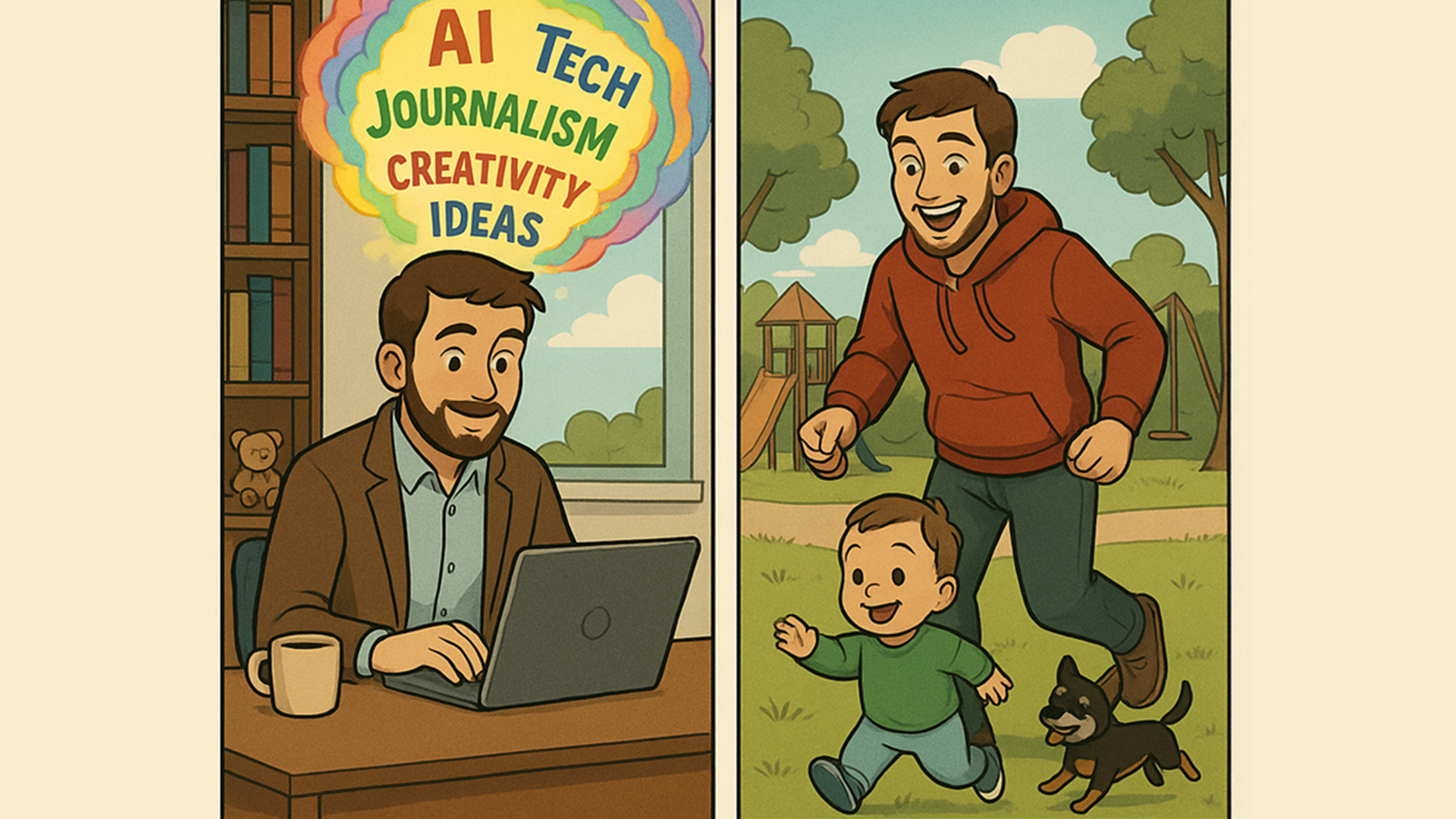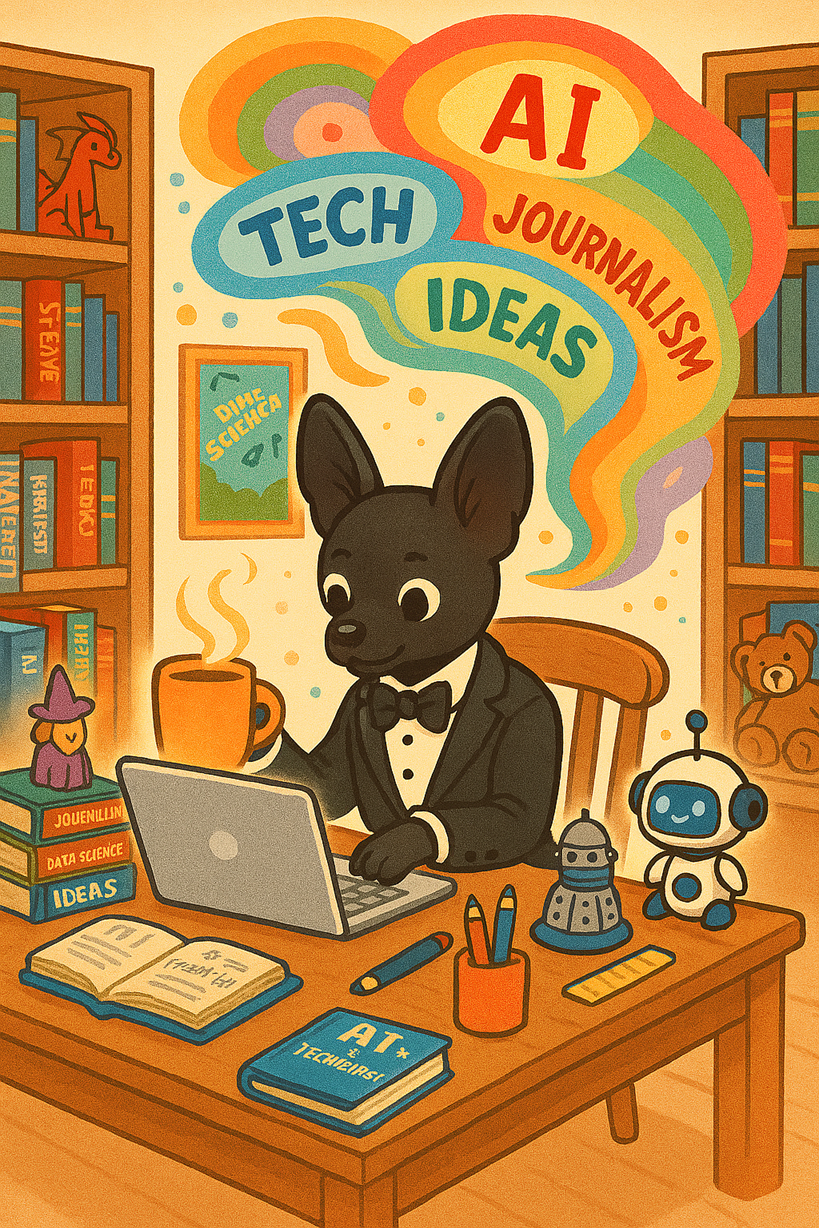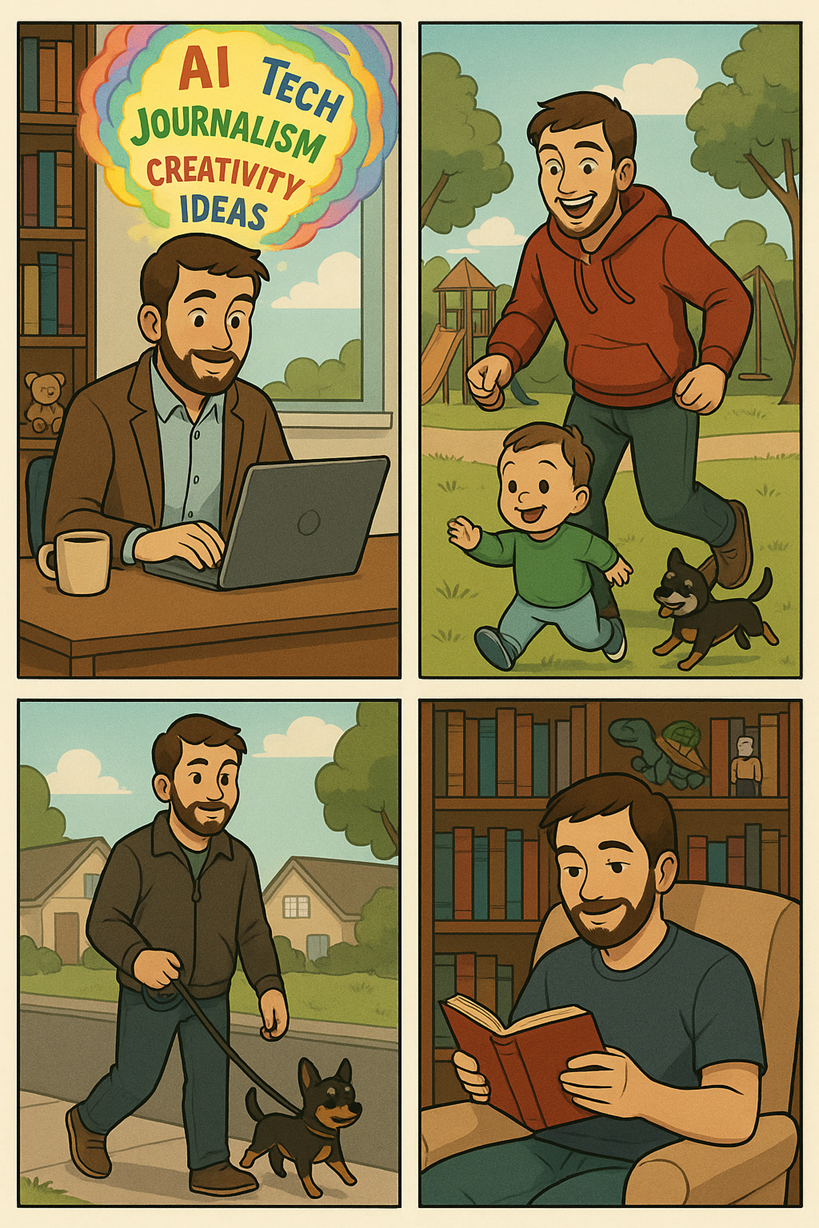I asked ChatGPT to make an image describing my life, but first I had to correct some errors
Mention your pet enough and it will think you're the dog

Sign up for breaking news, reviews, opinion, top tech deals, and more.
You are now subscribed
Your newsletter sign-up was successful
Seeing what ChatGPT thought some of my favorite characters said about me got me thinking about how well the AI chatbot might do at describing me in other ways. I saw a Reddit post showing how the AI can be surprisingly accurate at creating an image of your life based on what it knows about you, and thought I'd give it a shot. I asked ChatGPT to "Make an image that describes my life based on what you know about me."
From all the descriptions I've given ChatGPT through the many tests I've run and just personal life usage, I thought it might be pretty accurate. I expected to see myself writing, perhaps with my young son, or cuddling my dog in the park. Instead, ChatGPT seemed to think I am actually the dog and that I wear exclusively formal wear while writing. Oh, and also that my interest in AI and robotics means I actually own a small robot as a kind of pet.

As adorable as the cartoony image was, it implied I've talked about my dog Cabbage and shown pictures of myself in a tuxedo far too often. I was a little amazed that the AI somehow knew enough about me to include references to my favorite science fiction and fantasy series, but not enough to know I'm not actually a humanoid dog. Of course, if I refreshed it, I'm sure it would have changed, but I decided it was a good starting point for trying to make ChatGPT's internal sense of me more accurate.
Memory modification
ChatGPT's memory feature absorbs things you share with the AI over time, and you can manually modify it. It’s not some kind of spooky surveillance; it only remembers what you choose to tell it, and you can delete whatever you want. The idea is that the memory lets ChatGPT hold onto those facts between chats, which means you stop having to reintroduce yourself every time you open the app.
I've used it before and manually adjusted things the AI has misunderstood. But it must have been a while. So, I told ChatGPT to mark down for its memory several things about me, including that I'm a human, not a dog. I explained that I report on technology, especially AI, that I have a young toddler, a wife, and a chihuahua named Cabbage. And that while Cabbage is loyal, smart, sometimes picky about food, and very loving, she does not wear many tuxedos and never writes on my behalf (no matter how much I might like her to do so on occasion). I also cleared up my list of hobbies and things I do for fun in terms of parenting and reading.
After ChatGPT confirmed it understood what I wanted, I asked it to make a new image depicting my life.
Day in the life

Apparently bursting with knowledge of me, ChatGPT came back with a whole comic strip depicting a day in my life. There I was, human and clothed appropriately to write an article. There I was with my child and my dog playing in the park, then just on my own walking the dog. Finally, it was me in a chair reading a book. That's not a bad depiction of scenes from several days in my life. Importantly, it gets that I'm the human one.
Sign up for breaking news, reviews, opinion, top tech deals, and more.
ChatGPT can do a lot of impressive things out of the box, but it can still go off the rails in amusing ways. You may need to give it a bit of background to get the best results. That also means being intentional about what you teach it, and editing out what it gets wrong through the memory feature. You can see what it remembers and remove or update things as you want. It’s like curating the brain of a digital assistant.
And that's helpful in many ways. Once the AI starts remembering who you are, even just in broad strokes, it can generate better ideas for things like trips, meals, and gifts for the people around you. It's not that you should give away every single intimate detail, but the best AI experiences usually have at least some personalization. And if Cabbage wants to use ChatGPT to see what she looks like as a cartoon, she can open her own account.
You might also like
- I tried asking ChatGPT what my favorite fictional characters say about me – here’s what I learned about myself
- I built a personalized version of Super Mario-like game in seconds using Claude, and you can play it right now for free - here's how you can create your own game without coding
- Are you worried about AI? It's about to get worse as study shows people now speak like ChatGPT

Eric Hal Schwartz is a freelance writer for TechRadar with more than 15 years of experience covering the intersection of the world and technology. For the last five years, he served as head writer for Voicebot.ai and was on the leading edge of reporting on generative AI and large language models. He's since become an expert on the products of generative AI models, such as OpenAI’s ChatGPT, Anthropic’s Claude, Google Gemini, and every other synthetic media tool. His experience runs the gamut of media, including print, digital, broadcast, and live events. Now, he's continuing to tell the stories people want and need to hear about the rapidly evolving AI space and its impact on their lives. Eric is based in New York City.
You must confirm your public display name before commenting
Please logout and then login again, you will then be prompted to enter your display name.